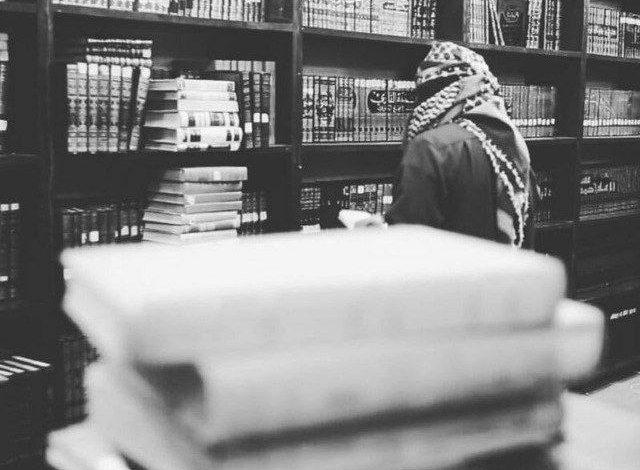
الحمد لله رب العالمين
والصلاة والسلام على من بعث رحمة للعالمين
وعلى آله وصحبه ومن تبعهم بإحسان إلى يوم الدين
Assalāmu Alaykum Warahmatullāh Wabarakātuh
Wa alaykumussalaam warahmatuLLAH wabarakaatuh
Beloved brothers and sisters
We shall continue our Halqah Session
Bārakallāhu fīkum
*QUESTION*
_” Name of Allah and His Rasul on that👆🏼wax, is it permissible to wear it?”_
*ANSWER*
Alhamdulillāh!
We have mentioned yesterday that the generality of the Ulamā stood against printing verses of the Qur’ān and the Names of Allāh on walls and clothes
…but they have a consensus on the forbiddance of printing them on clothes or other things that are laid.
This is because in so doing, the verses of the Qur’ān and/or the Names of Allāh will be exposed to denigration, dirt, being sat upon, etc.
If therefore it is established that the cloth you referred to carries in print the Name of Allāh, it becomes apparent that it isn’t permissible to purchase such a cloth for wearing, as a Way of respecting and honouring Allah’s Name.
The Muhaddith Imām Zakariyā Al-Ansārī – rahimahullāh – mentioned this in _Asnā Al-Matālib_
We however advise the Muslim that cares about his Dīn to buy those clothes and keep them from circulating in the market by so doing so as to prevent the Jāhils from doing the opposite.
Or better still, if we can have a great campaign that can discourage the producers.
We ask Allāh for guidance
Bārakallāhu Fīkum
*QUESTION*
_”Salam alaekun bro. How was your night? Please I have two questions bordering my mind and I need urgent reply sir”_
_1. Eating of food at burial ceremonies. Is it halal or haram. Kindly provide me with evidence that will suffice for me to explain to a third party.…_
*ANSWER*
Wa alaykum Salām Warahmatullāh Wabarakātuh
Brother, apologies for the delay in your question
It is a consensus of the Salaf (Predecessors) that whenever the Family of the Dead establish a gathering where people come together for other than the burial and where food is served, such an act is considered a form of Lamentation and impermissible mourning.
Imām Ahmad recorded in the Musnad that Jarīr Ibn ‘Abdillah Al-Bajalī – radiyallāhu ‘anhu – said:
كنا نعد الاجتماع إلى أهل الميت وصنعة الطعام بعد دفنه من النياحة
_”We used to consider gathering around the Family of the dead and (their) cooking after his burial a form of lamentation that is Harām”_
This Hadīth has been graded Sahih by more than one of the Muhaddithīn.
Imām Al-Hattāb Al-Mālikī – rahimahullāh – said in _Al-Mawāhibu Al-Jalīl_:
_”As for the People of the Dead cooking and the gathering of people around it, then a Congregation (of the Ulamā) have disliked it and considered it as Bid’a because its like has not been reported and such a situation does not call for celebrations.”_ِ
Ibn Al-Humām Al-Hanafī – rahimahullāh – said in _Fat’hu Al-Qadīr_:
_”And it is forbidden to take meal like guests do at the home of the People of the Dead. This is because such is recommended at times of joy and not times of misfortunes. And it is an ugly Bid’a”_ٌ
There are other similar statements that the Ulamā have made.
We ask Allāh for guidance.
Therefore, such gatherings are not legal in Islām and must be avoided.
Its meals must also be avoided.
However, if the People of the dead were to prepare food for the poor and the needy and to give it out as Sadaqah without invoking a gathering, this would be permissible Allāh willing.
This is because of the Hadīth that was recorded by both Imām Al-Bukhārī and Imām Muslim that Ā’isha – radiyallāhu ‘anha – said:
_”A man once said to the Prophet – salallāhu alayhi wasallam -_
_”My mother’ soul has departed and I see that if had she been alive at the moment, she would have give out Sadaqah. Would she then be rewarded if I were to give out Sadaqah on her behalf?_
_”He answered: Yes”_
Imām Ash-Shawkānī – rahimahullāh – said regarding this Hadīth:
_”The Hadīth shows that the Sadaqah of the child given for the Parents counts for them after their deaths and the reward reaches them. It therefore restricts the generality of the verse:
وَأَن لَّيْسَ لِلْإِنسَانِ إِلَّا مَا سَعَى.
_”And Man is not recompensed but by that which he worked for”_
This is the position of the _Jamhūr_ (Majority)
We ask Allāh for guidance and Steadfastness on the Path of His Dīn
Amin
*QUESTION*
_” 2. Eating of Christmas and new year food from Jews and the Christians. Is it halal or haram. Kindly provide me with a strong grounding evidence because I saw a verse of the Qur’an that says we can eat thier food but without specifications. Thanks in advance”_
*ANSWER*
Alhamdulillāh we have answered this question in the past a d we established that it is not permissible to eat of its meat that which was slaughtered for its purpose even if it was slaughtered by a Muslim.
And we mentioned that some of the Ulamā prohibited even eating of its farm produce (food, drinks and fruits).
And concluded that the strongest of the positions is the permissibility of eating anything of it that was not killed.
May Allāh grant us Tawfīq, āmīn
سبحانك اللهم وبحمدك أشهد أن لاإله إلا الله نستغفرك ونتوب إليك
Assalāmu Alaykum Warahmatullāh Wabarakātuh




